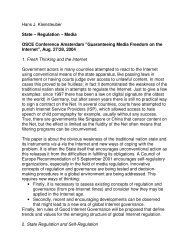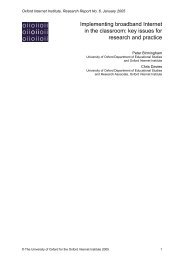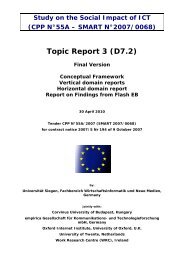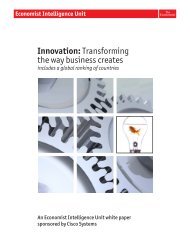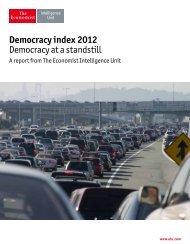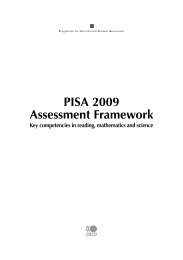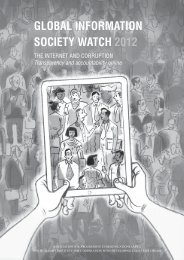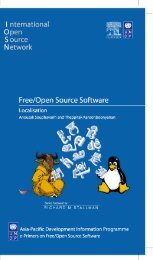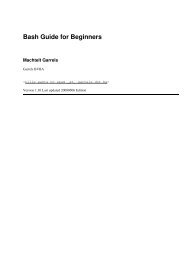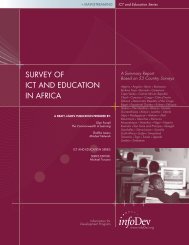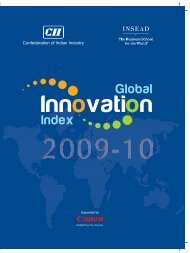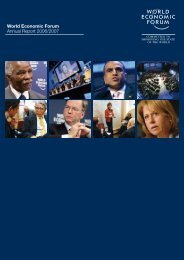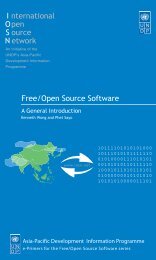1 PUBLIC POLICY FOR A KNOWLEDGE ECONOMY Joseph E ...
1 PUBLIC POLICY FOR A KNOWLEDGE ECONOMY Joseph E ...
1 PUBLIC POLICY FOR A KNOWLEDGE ECONOMY Joseph E ...
You also want an ePaper? Increase the reach of your titles
YUMPU automatically turns print PDFs into web optimized ePapers that Google loves.
engineered from Washington. The local economic agents and agencies— who have the<br />
local tacit knowledge— must take charge of the process of recreating the more universal<br />
institutional schema within the local matrix of economic, political, and cultural factors. It<br />
is this complex interplay of international and local agencies that is key to the Bank’s vision<br />
of knowledge-based development, a vision that moves well beyond the idea of universal<br />
recipes developed in Washington about “how to play football.”<br />
Active Learning and Intrinsic Motivation<br />
Development is about the transformation of societies which ultimately involves<br />
people changing how they think. External agencies cannot force people to change how<br />
they think or what they believe. 6 People can be forced to adopt certain behaviors and to<br />
utter certain words, but they cannot be forced to change their hearts or minds. That, they<br />
can only do themselves.<br />
In industry, the shift towards a knowledge-based economy involves a shift in<br />
organization away from top-down hierarchical structures to flatter structures such as<br />
networks of semi-autonomous teams. Tayloristic vertical structures were designed to<br />
enforce and coordinate certain physical behaviors while knowledge-based work<br />
organization involves greater recognition of the autonomy and self-direction of the mind.<br />
Knowledge is best acquired not by passive rote memorization but by the active<br />
involvement of the learner. Learning is by doing, not by watching or memorizing. These<br />
activist principles were embodied, for example, in John Dewey’s pragmatic philosophy of<br />
education. 7<br />
To foster the active involvement of the learner, the motivation should at best be<br />
intrinsic to the activity, not a superadded carrot or stick. While external incentives can<br />
6 "As little as another can go to hell or heaven for me, so little can he believe or disbelieve for me; and as<br />
little as he can open or shut heaven or hell for me, so little can he drive me to faith or unbelief." See<br />
Luther 1942 (1523). This insight was basic to the liberty of conscience and the attitudes of religious<br />
tolerance fostered in Europe by the Reformation.<br />
7 Perhaps the foremost example of a school system based on Deweyian principles was the system in my<br />
hometown of Gary, Indiana established in the early twentieth century see Bourne (1970). The effects of<br />
these reforms were still evident when Paul Samuelson went through the system to be followed by myself<br />
years later.<br />
6



